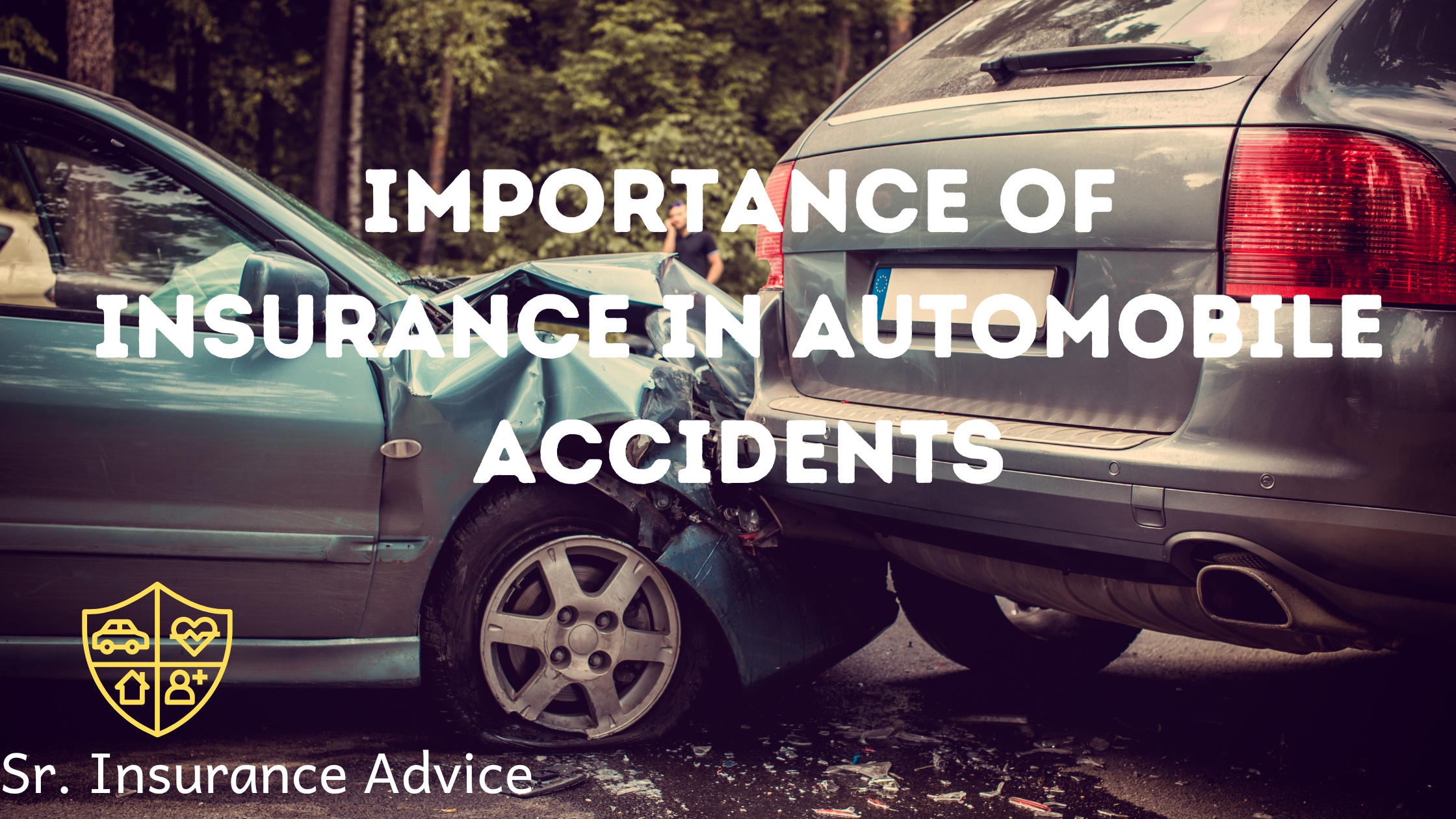Automobile accidents can cause significant financial losses, such as damage, medical costs, and wage loss. These costs can be reduced with the aid of insurance.
In the event of an automobile accident, several different kinds of insurance may be necessary:
Insurance for injuries: In most states, this kind of insurance was required by law. In the event of an accident, it will pay for any damage or injuries you cause to others.
Accident insurance: In the event of an accident, regardless of who is to blame, this kind of insurance will pay for any damage to your vehicle.
Comprehensive protection: Theft, fire, and other natural disasters are examples of non-collision events covered by this kind of insurance.
Insurance for uninsured or underinsured motorists: If you get into an accident with a driver who does not have insurance or does not have enough insurance to cover the damages, this kind of insurance will protect you.
Insurance for protection against injuries (PIP): No matter who was at fault for the accident, this kind of insurance, also known as “no-fault” insurance, covers medical costs and lost wages.
Reviewing your insurance policy and understanding your coverage in the event of a car accident is essential. If you are involved in an accident, you must get in touch with your insurance provider as soon as possible to file a claim and acquire reimbursement for your losses.
Importance of Insurance in Automobile Accidents
Almost all states have laws in place that require drivers to carry a minimum amount of insurance on their vehicles, and for good reason. The costs associated with even minor accidents can be astronomical when vehicle repairs, medical expenses, and other damages are calculated.
Having automobile insurance policies in place helps to cover these common accident-related costs and ensures that individuals who sustain damages and injuries receive the compensation they are entitled to. Because insurance can help cover such expenses, it is important to understand the role individual policies play after automobile accidents.
The Other Driver’s Insurance Policy
Following an accident, it is necessary to gather certain information from the other driver. This includes asking for their insurance card so you can document their policy number and the policyholder’s name. This information will be needed in order to initiate an insurance claim.
Getting the police involved may be necessary in accidents with injuries or extensive property damage. It is also helpful to call the police if a driver is refusing to exchange their insurance information with you. As part of this exchange of information, you will need to provide your insurance information to the other parties involved, too. This does not mean you are at fault for the accident or your insurance is responsible for covering accident-related costs. It is standard procedure that all parties involved in an accident provide their insurance information to one another.
Also Read: What Is Captive Insurance for Trucking Companies?
Whose Insurance is Responsible for Damages?
After an accident, an investigation will be launched in order to determine fault. The driver ultimately found to be responsible for the accident will also be held liable for any damages as a result. Individual insurance companies will often initiate their own investigations in order to make this determination.
In these cases, where fault is in question, it may be necessary to obtain a car accident attorney such as Barros, McNamara, Malkiewicz & Taylor. Their experienced attorneys will assist in the investigation, help determine fault, and be able to handle an insurance claim on your behalf.
Dealing with the At-Fault Driver’s Insurance
When the other driver is determined to be at fault, you will deal directly with their insurance company in order to recover compensation for your property damage and medical expenses. In order to settle your claim, they will request that you provide copies of the damages you incurred which may include:
- Vehicle repairs
- Medical expenses
- Lost wages
- Pain and suffering
The insurance adjuster will review all of the provided information and make a settlement offer. If you retained a car accident lawyer, he or she will be able to handle settlement negotiations on your behalf and help reach an amount that reflects the true costs associated with your claim.
Your Automobile Insurance Policy
In some cases, you may have to turn to your own insurance policy even if the other driver was at fault for the accident. Although the majority of states require insurance to legally operate a vehicle, not all drivers comply with these laws. If you find yourself involved in an accident with an uninsured or underinsured motorist, your insurance policy may be able to compensate you for the damages you sustained.
Almost all automobile accidents will involve an insurance claim. It is important that drivers understand the role insurance policies play in recovering compensation after car accidents. Often, the at-fault driver’s insurance will cover these costs. If they are uninsured or underinsured, drivers may have to turn to their own insurance companies for help in paying their medical bills and vehicle repairs.
Conclusion:
In conclusion, having insurance in an automobile accident is crucial for protecting yourself from financial losses. Different types of insurance, such as liability, collision, comprehensive, uninsured/underinsured motorist, and personal injury protection, can provide coverage for various costs associated with an accident.
By understanding your insurance coverage and reporting a claim promptly, you can help to ensure that you receive the compensation you need to cover expenses such as medical bills, vehicle repairs, and lost wages. Additionally, working with an experienced insurance adjuster or personal injury attorney can help you to negotiate a fair settlement with the insurance company and protect your rights.
In short, having insurance can provide peace of mind and financial protection in the event of an automobile accident, and it is important to make sure you have adequate coverage.
Related Articles:
How to Settle a Personal Injury Claim Injured by a Drunk Driver?
